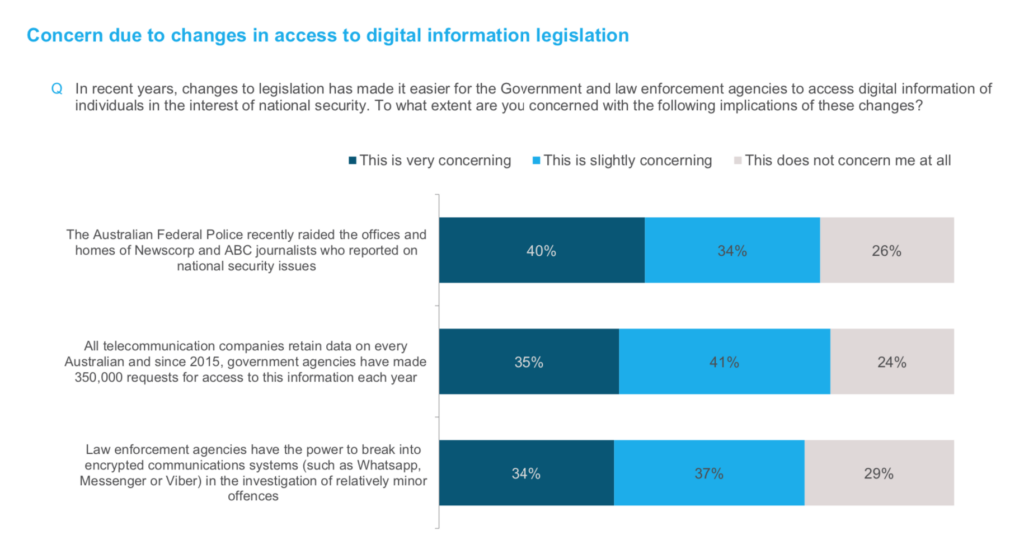New polling shows that Australians have a high level of concern over legislation that has made it easier for the Government and law enforcement agencies to access their private personal digital information.
The polling, commissioned by Digital Rights Watch and undertaken by Essential Research, has revealed:
- 76% of people expressed concern that telecommunication companies retain data on every Australian.
- 71% had concerns that law enforcement agencies have the power to break into encrypted communications systems.
- 74% of people are concerned about the recent raids by Australian Federal Police on the homes and offices of journalists who reported on national security issues.
“We know that people are concerned about the raft of powers that have been given to law enforcement over the past few years. There is a glaring lack of transparency and oversight over how these powers are used,” said Tim Singleton Norton, Chair of Digital Rights Watch.
“In the last year alone, government agencies made more than 300,000 requests for metadata, with only 5 of these requests being refused. That’s a huge disparity, and one that points to what we’ve known all along – for the government to suggest this is anything other than blanket surveillance of the Australian population is ridiculous.”
“The recent Commonwealth Ombudsman’s report has revealed the true extent of metadata requests across the country and the complete lack of due process from law enforcement agencies. A huge number of requests for access to metadata were completely unauthorised and unwarranted – and the public are right to be concerned about this,”
“The passage of encryption-breaking powers last year was a complete debacle, and caused a great amount of distrust in the political system – which this polling is showing loud and clear. The majority of Australians are not at all comfortable with the scope and implementation of these powers, and they have every right to feel this way,” he concluded.


